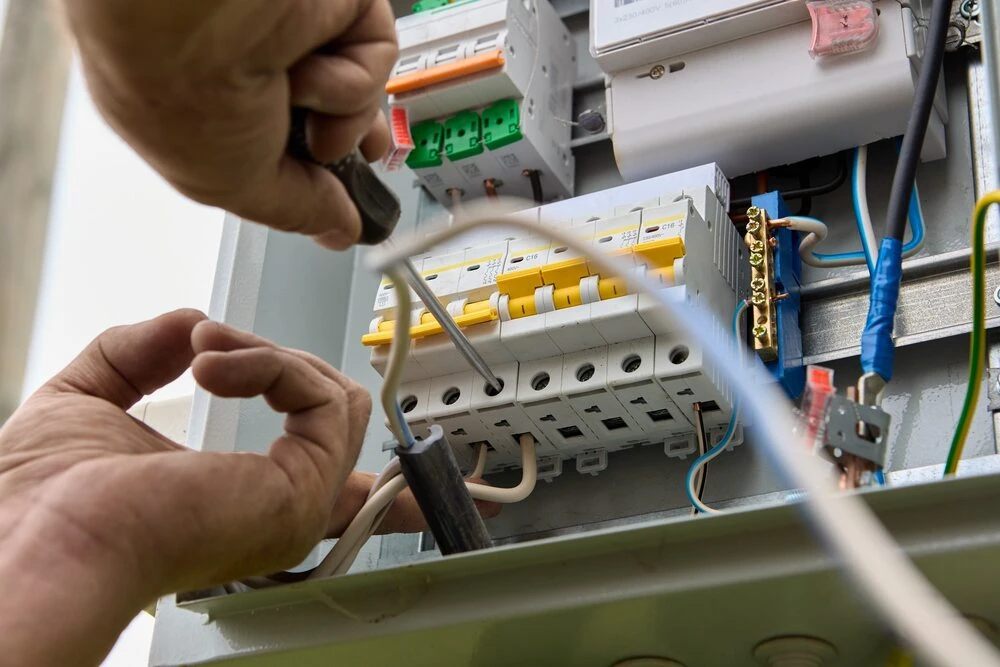Your electrical panel, often referred to as the heart of your home’s electrical system, plays a crucial role in distributing power throughout your house. However, like any component of your home, it can encounter issues that may affect its performance and safety. Here are five common electrical panel complications you should be aware of.
1. Frequent Circuit Breaker Trips
One of the most common issues homeowners experience with their electrical panel is frequent circuit breaker trips. This typically occurs when a circuit is overloaded, meaning too many devices or appliances are drawing power from a single circuit.
Warning Signs:
- Breakers frequently trip when multiple devices are in use.
- Lights flicker or dim when high-power appliances are turned on.
Solution:
- Avoid overloading circuits by redistributing your devices across multiple outlets.
- Consider upgrading your electrical panel to accommodate higher power demands.
2. Rust or Corrosion on the Panel
Rust or corrosion on your electrical panel is a clear sign of moisture exposure, which can be a serious hazard. Moisture can lead to short circuits, electrical fires, or complete panel failure.
Warning Signs:
- Visible rust or discoloration on the panel or breakers.
- A musty smell coming from the panel.
Solution:
- Have a licensed electrician inspect and replace any corroded components.
- Address any moisture issues in your home, such as leaks, to prevent further damage.
3. Overheating Circuit Breakers
Circuit breakers are intended to safeguard your home by shutting off power when a circuit becomes overloaded. However, if a breaker overheats, it may not function properly, posing a fire risk.
Warning Signs:
- The electrical panel is noticeably warm when you touch it.
- A burning smell coming from the panel.
- Scorch marks around the breakers.
Solution:
- Stop using high-power appliances on the affected circuit immediately.
- Contact an electrician to inspect the panel and replace any faulty breakers.
4. Outdated Electrical Panels
Older homes often have outdated electrical panels that may not meet current safety standards or support modern power demands. Panels with fuses instead of circuit breakers or those that are more than 25 years old are particularly at risk.
Warning Signs:
- The panel is equipped with fuses rather than circuit breakers.
- The panel relies on fuses rather than circuit breakers.
- The panel is more than 25 years old and has never been upgraded.
- Frequent electrical issues like dimming lights or flickering.
Solution:
- Upgrade to a modern electrical panel that meets current safety standards and can handle your home’s electrical load.
5. Buzzing or Humming Sounds
Unusual sounds coming from your electrical panel, such as buzzing or humming, are often a sign of a loose connection or faulty breaker. Ignoring these sounds can lead to more severe problems, including electrical fires.
Warning Signs:
- Persistent buzzing or humming sounds from the panel.
- Breakers that don’t reset properly.
Solution:
- Turn off the power and contact an electrician immediately to diagnose and fix the issue.
Conclusion
Understanding these common electrical panel complications and addressing them promptly is essential for maintaining the safety and efficiency of your home’s electrical system. If you notice any of these issues, it’s important to consult with a licensed electrician to ensure your home remains safe and properly powered.
For expert advice or assistance with your electrical panel, reach out to JMR Electric Group today.

